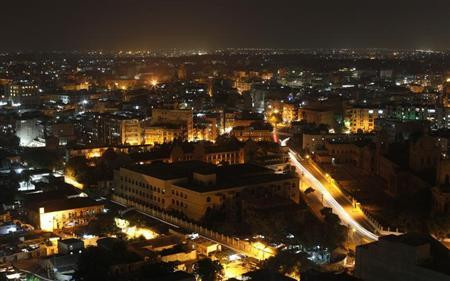Pakistan Making Progress Under IMF Plan, Moody's Says

Pakistan's continuous progress under the IMF's Extended Fund Facility is credit positive, because it suggests that the government is broadly on track with EFF-prescribed reforms, Moody's has said.
However, any loss of reform momentum could strain the country's ability to repay its debts. Political willingness to push ahead with reforms will be crucial.
Moody's had revised its outlook on the sovereign's rating to stable from negative in July.
This progress should secure the next tranche of IMF funding, which is key to bolstering its external liquidity position and ensuring macroeconomic stability, the rating agency said.
Pakistan's ability to drive structural reforms, despite resurgent political fractiousness, would be a key factor supporting its credit profile.
Although discussions are ongoing, successful completion of the fourth review and approval by the IMF's management board would allow the release of $569m in September, taking cumulative disbursements under the 36-month, $6.8bn programme to $2.8bn, Moody's noted.
This would buoy up Pakistan's foreign reserves, which climbed to $9.6bn in July from $2.8bn in early February, but had edged down to $9.2bn by August. However, reserves still exceed debt repayments due in the fiscal year ending 30 June, 2015.
The IMF noted improved macroeconomic performance and estimated that real GDP growth will rise slightly to 4.3% in fiscal 2015, from 4.1% in fiscal 2014 supported by firming confidence in the economy.
The economic confidence in Pakistan is reflected in the recovery in private sector credit, which increased 8% in May from a year earlier, the highest rate in more than five years.
A reduction in government borrowing from the banking system freed up the flow of credit to the private sector. A ceiling on net borrowings from the State Bank of Pakistan is a quantitative criterion that the IMF requires Pakistan to meet, although the country slightly exceeded the ceiling in the fourth quarter of fiscal 2014.
The containment of central bank monetisation of government budget deficits also helped to curb inflation, which has been trending downward since April this year and stood at 7.9% year on year in July.
IMF prescription
The IMF programme requires Pakistan to meet 21 structural benchmarks, including energy and tax reforms and enhanced revenue collection.
So far, the government has achieved 10 of these benchmarks and implemented some difficult reform measures, including raising electricity prices and the sales tax rate, and steps to clear arrears in the energy sector.
However, the remaining targets will be challenging. These include significantly reducing the fiscal deficit, privatising public sector enterprises, which will likely face widespread political opposition, and addressing energy shortages, Moody's added.
© Copyright IBTimes 2025. All rights reserved.






















